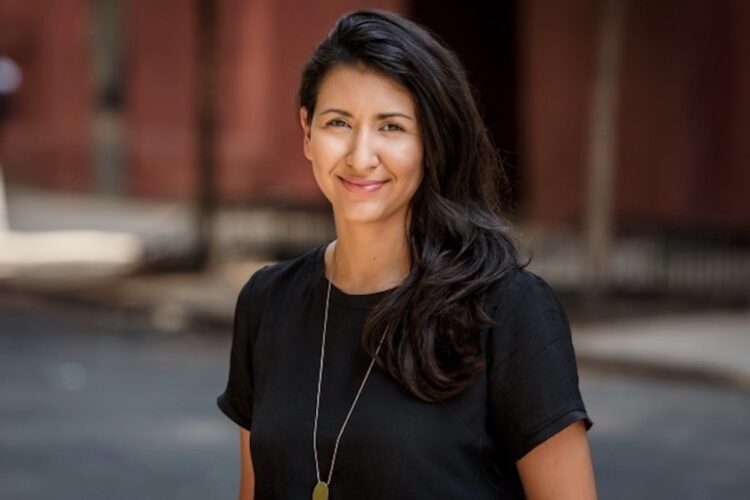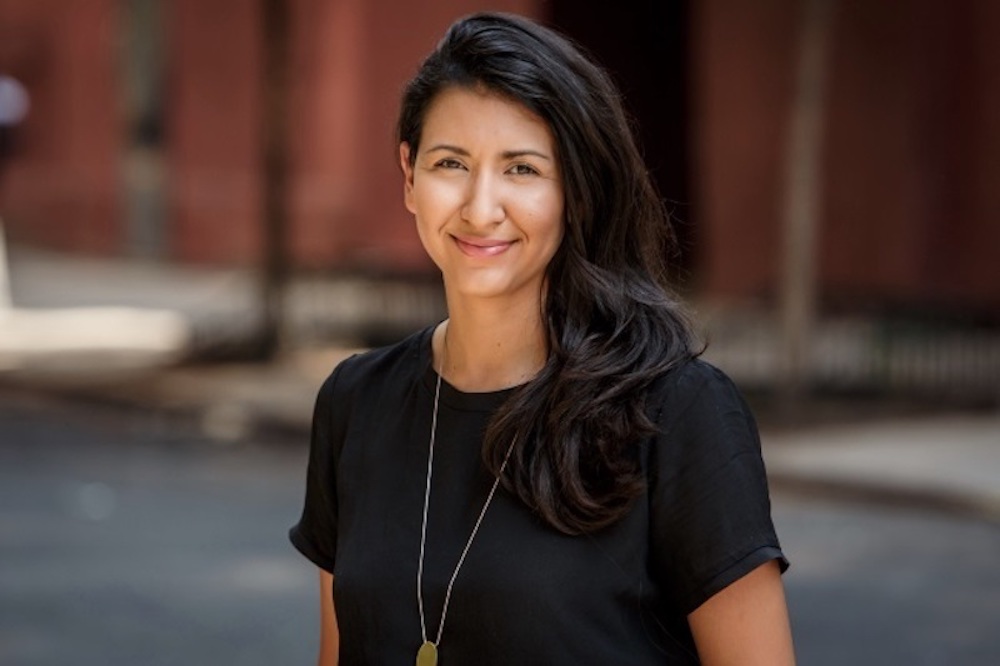Are you a woman in NYC Tech and interested in participating in this series? Make sure to read the whole article…
Much has been said and written about the lack of women in the tech sector, be it as investors (or associates), founders, or in management positions at major companies. Is the problem the old boys network – or that success in technology is seen as a young man’s game? In this series, we speak with some of the top women in tech in New York as they discuss the challenges they face, the perceptions that need to be changed and the work that’s being done – or not – to help to promote women in tech.
Today we speak with Claudia Page, VP of Partner and Product Development at Dailymotion. Beginning her career as an early employee on the product team at Gerson Lehrman Group, Claudia went on to become social network Sulia’s first hire, which later led to a VP position in platform growth with Crowdtap. Claudia brings 13 years of experience in advertising and publishing to Dailymotion and is focused on Dailymotion’s partner and streaming experience. A strong voice in the NYC Tech community, Claudia is a frequently published thought leader and was recently named to DM News’ 40 Under 40 list.
Claudia Page, Dailymotion
What’s your background and how did you develop your career as a female entrepreneur in the NYC tech ecosystem?
I’ve always been drawn to taking on big challenges in the digital publishing space. Throughout my career, I’ve worked at startups and growth-stage companies to help publishers reach and engage audiences amid massive shifts in the industry. In many ways, these changes in publishing have been quite cyclical. We saw AOL and Yahoo attain dominance in the early days of the internet only to be completely upended by the rise of social media. Today, we’re seeing similar disruptions with respect to digital publishers’ relationship with Facebook, which of course, recently revamped its News Feed to the detriment to many companies who had built a reliance on driving traffic via the feed.
Specifically, I was an early employee at Sulia, one of the first subject-based social networks, and after that, I led the Creator Partnerships product and team for Crowdtap, a SaaS technology company that connects niche influencers with brands. My current post is with dailymotion, a Vivendi-owned video discovery platform that connects people with trusted content from the world’s best storytellers. There, I serve as Vice President of Partner Products, where I work with an amazing cross-functional team and stakeholders to build and evangelize dailymotion’s best-in-class video player technology with premium publishers from around the world.
 What is diversity to you and do you see it evolving in tech? Have you seen a change in the way women in technology are treated over your 13-year career?
What is diversity to you and do you see it evolving in tech? Have you seen a change in the way women in technology are treated over your 13-year career?
Diversity is one of the biggest competitive advantages any business can have. It means your team is operating with a range of ideas and viewpoints that come together to inform more breakthrough ideas that can truly shift or completely alter the direction of a company, and more broadly, an industry. Much more than a box to check, diversity is a competitive advantage.
I’ve seen a lot of progress over the course of my career, but we still have a ways to go. I think our industry is in a great place to effect real change right now, and I am optimistic about what the future has in store.
What are the advantages of being a woman in tech?
That’s a difficult question for a couple of reasons. For one, the challenges of being a woman in a male-dominated industry have, thankfully, been well-publicized and aggressively reported on over the past 12 to 18 months. So many brave women (and some men, too) have come forward to drive real change in our industry and I think all of us, men and women alike, are better for it.
Second, I’ve attributed my personal and professional growth to characteristics about myself that are not gender related. I’ve experienced many advantages in my own path in that I am a natural problem-solver and someone who is motivated, not discouraged, by big challenges that are not cookie-cutter. These experiences, even failures, tend to lead to the most personal and professional growth.
What can be done to further promote female entrepreneurs and women in tech in New York?
Mentorship is key. We must start sooner when it comes to developing, training, and supporting the next generation of female leadership. So yes, while it’s absolutely necessary to push for parity among current leaders, our focus should also be on the young professionals (and students, frankly), who will be running things in the future. I am a huge proponent of any organization that helps evangelize STEM and technology training among all students starting as early as elementary and high school. Beyond that, the current ranks of tech leadership need to make it a priority to serve as mentors for our young professional women, arming them with the skills and opportunities they need to rise up and lead in the years that come.
Young women in tech need to understand the critical role that confidence plays in their career paths. Simple shifts to how we view our abilities and even how we suss out potential opportunities can lead to big changes down the line. For example, young women are more likely to sell themselves shorts when reviewing a potential job description. They can see these as roadblocks instead of opportunities. My advice is to stop obsessing over arbitrary bullet points in a job role, and instead, find ways to sell yourself to employers in a way that proves your value outside of the narrowly defined scope of the role.
Why do you think it’s important that women retain, grow, and develop into senior roles within their organizations?
A recent study by Credit Suisse found that having at least one female board director led to better return on investments compared to companies that had all-male boardrooms. Parity is the right thing to do, and the research shows that it’s also a smart business move.
How much do you think casual sexual harassment and misconduct affects a woman’s career?
No sexual harassment is “casual.” There is no exception.
We need to fix the education gap when it comes to how some men define “sexual harassment,” and I think that gets to the heart of an important conversation. Considering the globalized nature of technology, these nuances can get even more complicated across cultures and markets. The current narrative hasn’t evolved enough that professional environments are free of female objectification. Even occurrences that might seem innocuous can have deep psychological consequences that influence the way women navigate their careers over time.
Time’s up.
The team at AlleyWatch believes it’s important to have an inclusive discussion around the challenges facing women in tech along with highlighting the work of the female entrepreneurs that have made NYC one of the best places for women in tech according to some recent studies. That’s why we are running this series that showcases women in tech in New York.
If you are a female founder in NYC working in tech and interested in participating in the series please visit this link or click on the image above.
Please feel free to pass this on to any women in NYC that you feel should be considered for the series. Thank you.






